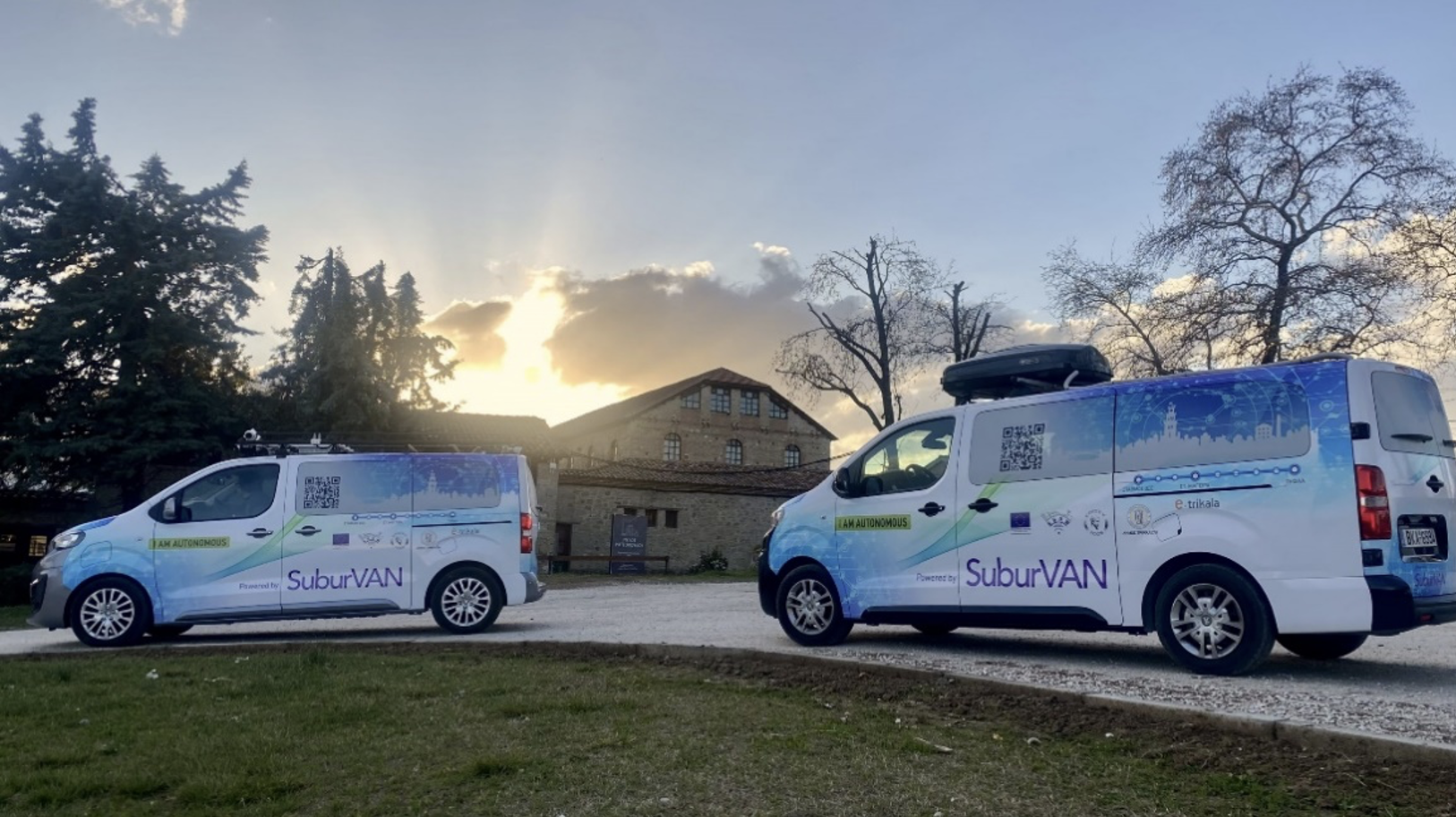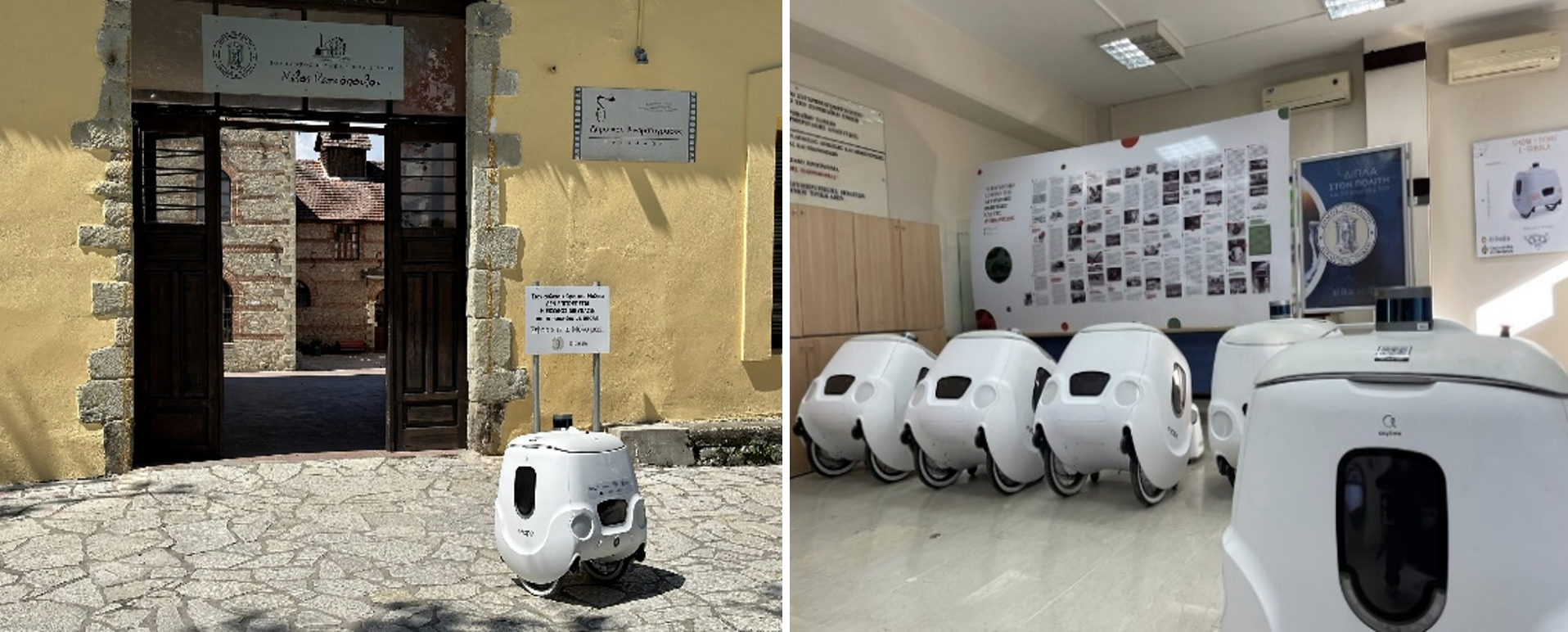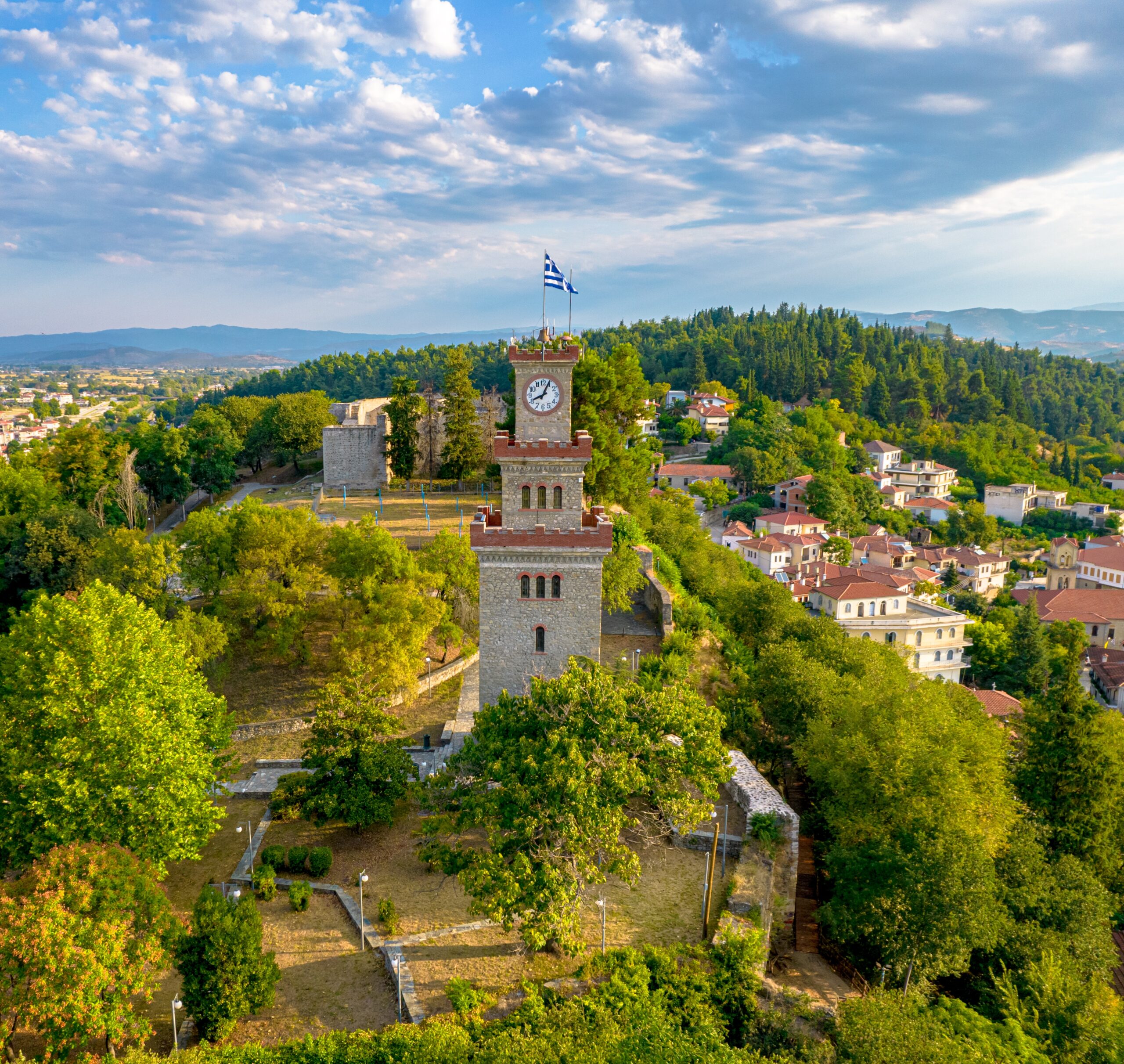In the framework of SINFONICA, e-Trikala is conducting user acceptance semi-structured interviews with citizens to understand their needs and requirements for mobility. It is also facilitating focus groups with citizens and workshops with multiple stakeholders to capture their mobility needs. At the same time, two SINFONICA project partners, e-Trikala and ICCS are currently organizing, in the framework of the project SHOW, the trial operation of autonomous vehicles in the urban and rural context of Trikala in Greece.
The two projects are ongoing and their synergies produce a greater effect and impact than the individual projects do. The two CCAM projects have different processes, priorities, goals, but contribute to the same result that is the transformation towards automation, co-creation and inclusivity through joint efforts.
In particular, the pilot demonstration of the SHOW project in Trikala, is operated by e-Trikala, coordinated by ISENSE Group of ICCS and conducted with the cooperation of CERTH/HIT, University of Genova and SuburVAN. It constitutes an integrated initiative of piloting autonomous passenger and logistics transportation vehicles in an urban – rural environment.
The pilot demonstration includes the successful operation of logistic services constituting by a fleet of 5 delivery robots (YAPES) within the previous period. In addition, it includes 3 autonomous passenger transportation vehicles (SAE L4) that operate on demand within the vehicles’ operating hours and with fixed stops. The passengers’s vehicles’ route has a length of 9,75 km and it connects major mobility hubs and points of interest of the city, in a mixed traffic environment. The shuttle rides have confronted various technological barriers during their operation in an urban environment. They are free of charge for passengers providing to citizens the opportunity to test autonomous systems and services and improve their everyday mobility patterns and accessibility at the outskirts of the city!
Another major achievement of the SHOW pilot in Trikala is that the legal limitations have been tackled! The pilot was put into operation by a new law and ministerial decision of the Ministry of Transport. It is supported by the Trikala Municipality and local ecosystem.

Demonstration of SHOW project in Trikala - Trikala pilot’s Autonomous mini vans provided by SuburVAN

Demonstration of SHOW project in Trikala - Fleet of Delivery robots (YAPES) provided by University of Genova
During SHOW’s pilot demonstration, in the context of SINFONICA project e-Trikala designs a multilevel process of direct engagement with citizens and stakeholders to collect essential insights into their mobility patterns, challenges, and needs. Vulnerable users have been actively engaged within the project, such as elderly, disabled, people living in rural areas and others. By activating a broader segment of the population than in traditional methods of data collection, a comprehensive range of opinions and perspectives regarding CCAM has been collected and is able to be used for future policy-making and strategic planning.
In total, in SINFONICA more than 35 citizens have been interviewed and 4 focus groups have been organized. The surveys’ results of SINFONICA showed that the ongoing pilot demonstrations of SHOW contributed in the high acceptance of CCAM by the local society. Another element of SINFONICA is that the focus groups with younger citizens prioritized sustainability, accuracy, privacy and ethical issues while older social groups prioritized safety, security and access without barriers as the most important characteristics. A potential is met in fulfilling older peoples’ mobility needs in moving from the periphery of the city towards the city center, while younger people emphasized the need to access to real time information and to have more sustainable and climate-neutral mobility means of transportation. These trends do not neglect the variation between and within social groups as well as the complexity of the different contexts, individuals and their needs.
In summary, the synergies between the projects of SINFONICA and SHOW are considered as crucial: SINFONICA project showed that autonomous vehicles pilots, such as the ongoing one of SHOW project, are able to contribute on reducing concerns about CCAM and future public transport service. To ensure that CCAM truly serves local communities, it is indispensable to integrate projects that focus on participatory methodologies with projects that deal with technological, legal and financial challenges. Based on the Trikala Living Lab, it is essential that the different CCAM projects discuss together and, finally, take steps towards each other in order to serve the daily mobility needs of people in urban and rural areas.
Authors: Christina Karaberi, Georgios Gorgogetas, Dr Elena Patatouka (e-Trikala)
Cover picture from Nestoras Argiris on Unsplash


